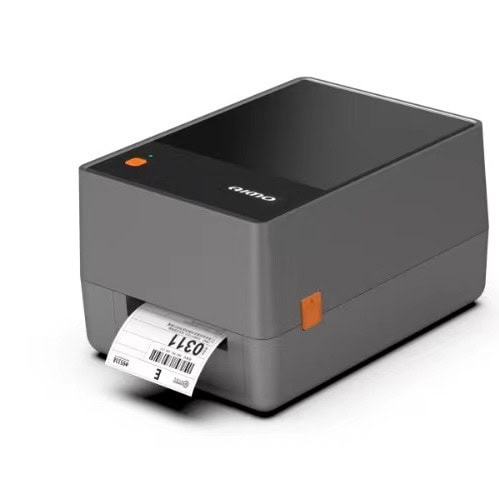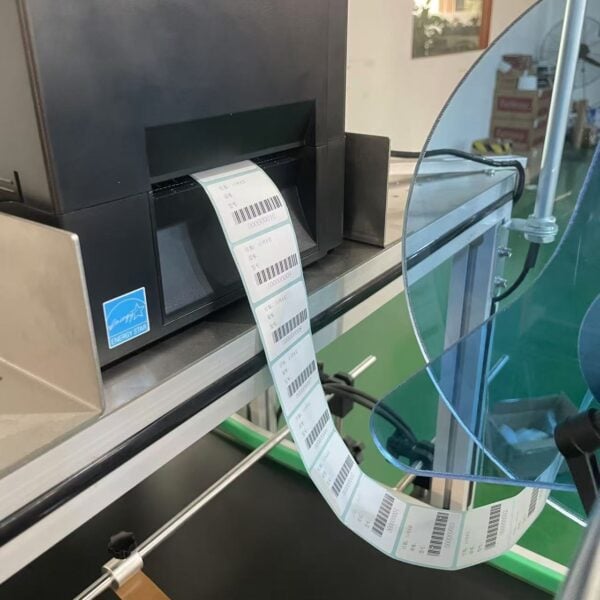Thermal printers are crucial for industries that require fast, cost-effective, and high-quality printing. Without them, businesses face inefficiencies and increased costs. Discover their diverse applications.
Thermal printers are commonly used for printing receipts, shipping labels, barcodes, tickets, ID badges, and more. Their speed, reliability, and low maintenance make them ideal for retail, logistics, healthcare, and manufacturing industries.
Here are the key applications of thermal printers across various industries.

What is a Thermal Printer?
Thermal printers use heat-sensitive technology to produce images or text, offering speed and durability in printing tasks.
Thermal printers create high-quality prints by using heat on specially coated paper or ribbons, eliminating the need for traditional ink cartridges.
Dive Deeper
- Direct Thermal Printing: This method uses heat-sensitive paper, making it ideal for short-term uses like receipts. However, the prints may fade over time.
- Thermal Transfer Printing: Employs ribbons to create long-lasting prints, perfect for industrial uses like labeling machine outputs or barcode labels.
For industries requiring consistent, long-term label printing, thermal transfer technology often complements devices like a flag labeling machine.
Why Are Thermal Printers Popular in Retail?
Retail businesses rely on thermal printers for their efficiency and quality in fast-paced environments.
Thermal printers are indispensable in retail for printing receipts, product labels, barcodes, and shipping labels, ensuring smooth operations.
Dive Deeper
- Receipt Printing: Thermal printers produce clear, legible receipts with minimal costs and maintenance, vital for any point-of-sale system.
- Barcode and Label Printing: Inventory management benefits greatly from barcode labels created by thermal printers, especially when paired with a barcode printer or industrial label printer.
How Are Thermal Printers Used in Logistics?
Logistics and shipping industries use thermal printers to streamline operations and ensure accuracy.
Thermal printers are ideal for printing shipping labels, warehouse tags, and tracking barcodes, optimizing logistics workflows.
Dive Deeper
- Shipping Labels: High-volume shipping operations depend on thermal printers for accurate, fast label generation.
- Warehouse Applications: Thermal printers help create scannable labels and tags for better organization and tracking in warehouses.
Combining these printers with automation equipment, like a shrink wrap machine, can further enhance productivity.

What Role Do Thermal Printers Play in Healthcare?
Healthcare sectors depend on thermal printers for accurate and secure documentation.
Thermal printers are used in healthcare for printing patient wristbands, prescription labels, and medical records, enhancing accuracy and reliability.
Dive Deeper
- Patient Identification: Durable wristbands printed with thermal technology ensure error-free identification.
- Pharmacy Labels: Clear and reliable labels reduce medication errors and improve patient safety.
Their integration with advanced systems like automatic liquid packaging machines adds further efficiency in medical environments.
Additional Uses of Thermal Printers
1. Event Ticketing
Thermal printers are widely used in ticketing systems to produce high-quality tickets with secure barcodes.
Thermal printers are widely used in event ticketing for fast, cost-effective printing of high-quality tickets with barcodes.
2. ID Badges
Thermal printers generate durable and scannable ID badges for employees, enhancing security and organization.
Thermal printers generate high-resolution ID badges for enhanced security in offices and events.
3. Food and Beverage Labeling
Used for expiration dates, pricing, and nutritional labels, thermal printers ensure regulatory compliance.
Thermal printers are essential for food labeling, ensuring compliance with safety and regulatory standards.
4. Banking Applications
Banks use thermal printers for printing receipts and secure transaction records.
Banks use thermal printers for secure and instant printing of receipts and records.
5. Manufacturing Labels
Thermal printers aid in product labeling and compliance needs in industrial settings.
Thermal printers help manufacturers by creating precise labels for product tracking and quality control.
Conclusion
Thermal printers are versatile tools with wide-ranging applications in retail, logistics, healthcare, and beyond. Their efficiency, durability, and cost-effectiveness make them indispensable across industries.









